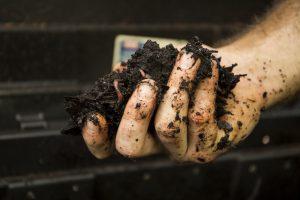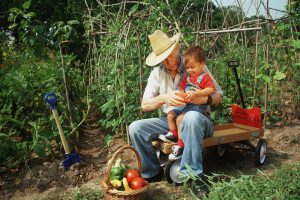Black gold you create
I’m not speaking of the black gold that came bubbling up when Jed Clampett found oil while shooting at food. To make this black gold doesn’t take millions of years under the pressure of the earth. You can make this in any corner of your yard with things you were planning on disposing of anyway. I’m talking about compost and all you need is a pile of plant debris.
Out-of-control prices
Fertilizer prices have more than doubled in the last year and there may be no relief in sight. Farmers face the decision of whether to grow crops in an atmosphere of increased fertilizer and fuel costs, as well as soaring transportation costs. What will this mean for the prices at the grocery store? We are already seeing the results of that. Where it will end is anyone’s guess. Time to get serious about that home garden.
Surviving like a Pioneer
Before you could purchase a bag of fertilizer, pioneers and homesteaders used what was available to them. Recycling yard and kitchen waste has never made more sense. Those of you that are worried that making compost is a lot of work, might remember that all you need to do is make a pile and let it rot. The pile should be at least three feet by three feet. Turning it, keeping it wet, and covering it with a tarp are options that will speed up its progress. Another trick is putting the correct amounts of ingredients together. Think of it as a recipe for a mud pie. Something you will not eat but, feed to your plants. All plants should eat that well.
Getting wormy with it

Some have found that earthworms are also a great way to obtain nutrients for your garden. Raising them to compost your kitchen and other waste is something worth looking into. Called vermiculture or vermicomposting, worm castings are collected and added directly around the plants. Worm tea can be made with castings and poured on and around the plants also. Worms do not take up much room and create very little if any, smell. Some newer worm systems are designed to be kept inside. You’ll even be able to harvest some of the fatter ones to take fishing!
Learn from UF/IFAS
If this all seems daunting, consider letting the experts at UF/IFAS help. On July 9th we are offering a class on Composting and Vermiculture. The two-hour class is taught by myself and Master Gardener Volunteer, Judi Bentley. Click here to register for this class. In August you can continue your gardening education with my Beginners Florida Vegetable Gardening course. That class comes with a one-hundred-page booklet filled with the University of Florida’s latest gardening information. Click here for information and to register for this class.
Keep in Touch with UF/IFAS Extension, Highlands County

In Highlands County, our office is at 4509 W George Blvd., Sebring. The Master Gardener Help Desk is open Monday – Friday from 9 AM to 3:30 PM.
That’s what’s new from the Hometown Gardener. Like and Follow me on Facebook at Hometown Gardener.
Read my other blogs by clicking here.
Sign up for our Highlands County Master Gardener Volunteer, “Putting Down Root” Newsletter Here.
Join our Facebook groups Highlands County Master Gardeners, Science-Based Florida Gardening Answers, Central Florida Butterfly and Pollinator Club, and Heartland Beekeepers
 0
0
